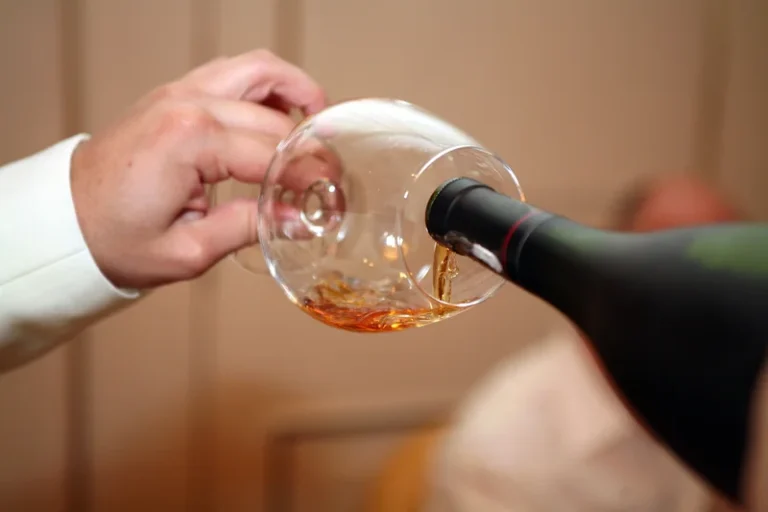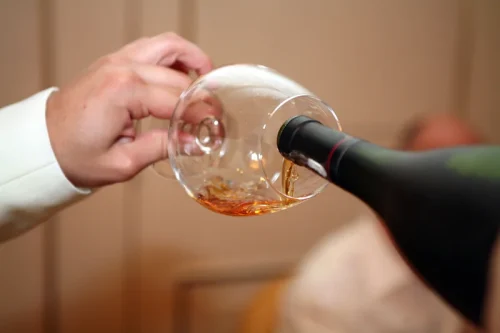18 Dec. 20
6 Things That Happen To Your Body When You Stop Drinking

Information and shareable resources to help others choose to drink less alcohol and be their best. For those with alcohol misuse and dependence, the conditions are connected to chronic sleep disturbance, lower slow-wave sleep, and more rapid eye movement. As we welcome the New Year and the possibilities it presents, I offer this conversation as an encouragement to consider the many ways in which alcohol continues to interfere with your health, hopes, and dreams.
Weight loss
Quitting can lead to https://ecosoberhouse.com/ more stable moods, a reduction in anxiety, and more dangerous symptoms. Alcohol impairs cognitive function, affecting memory and concentration. Once you quit, you’ll notice improved mental clarity and cognitive abilities.

The Science Behind The Chip On Your Shoulder And All The Drama When We Drink – Victoria English

It’s how we pick ourselves up and keep on going that matters the most. Now that you’re alcohol free, you’ll be waking up earlier and with fewer hangovers. Planning more fun morning activities will help take advantage of this clarity. It’s also handy as a quick getaway in case you find the social event too difficult to handle – in terms of alcohol free lifestyle temptations to drink, or even if you decide to go home early.
Decrease the risk of heart disease

Instead of having an ambitious target, it is much better to take this journey step by step so you can digest and be able to mentally prepare for it. There are a number of different ways you can start implementing this tactic. You could paste the reason as a post-it around your house and workplace. You could implement this as a reminder on your phone; or include this in your morning routine and gratitude practices.
If you find yourself unable to make progress, additional support from an alcohol-free program is ideal. A professional coach can help address the underlying issues that contribute to alcohol dependence. An alcohol coach begins by assessing your drinking history, current habits, and personal goals. This helps them understand your unique situation and tailor their guidance to your needs. Furthermore, practice saying “no” to alcohol in social situations. Also, engaging in regular physical activity helps fill the time previously spent drinking.
- This substitution can help satisfy the habit of having a drink in hand without consuming alcohol.
- So these very similar themes that seem to be emerging in the UK as well, around people’s kind of motivations and reasons for not drinking.
- Loved ones are an integral part of the addiction recovery process, but they need to balance their own needs in addition to providing support.
- People want a reason why you’re not drinking and, if it’s not strong enough, many of them will try to persuade you to “just have one or two”.
But treatment and support are available to help those suffering begin to heal. Loved ones are an integral part of the addiction recovery process, but they need to balance their own needs in addition to providing support. To do that, they can set boundaries around their emotional, physical, and financial relationship, for example that the house will remain an alcohol-free zone. They can research alcoholism to understand the underpinnings of the disorder, the signs of an overdose, and other important information. They can discuss co-occurring mental illnesses such as anxiety and depression.
I’M JAMES SWANWICK
Unlike tapering off, which can delay the benefits of quitting, going cold turkey demonstrates a firm commitment to making a positive change. Not only does alcohol addiction, or alcohol use disorder (AUD), affect those who have it, but it can also have significant effects on their interpersonal relationships and households. Heavy drinking can fuel changes in the brain—about half of people who meet the criteria for alcoholism show problems with thinking or memory, research suggests. The ability to plan ahead, learn and hold information (like a phone number or shopping list), withhold responses as needed, and work with spatial information (such as using a map) can be affected.
- If you add in costs of drinking in social settings at restaurants, bars, and clubs, the amount might be more.
- And one of the biggest drivers of the nonalcoholic market actually are people who still drink.
- One that necessitated relying on the very people with whom he’d been imbibing.
- Make sure your children are eating a healthy diet and getting adequate exercise and sleep.
Support & Community
While alcohol is high in calories, and wine, beer, and mixed drinks add sugar to one’s diet, Kumar said that simply cutting it out may not always help you lose weight. Dr. Dasgupta said for social and moderate drinkers, participating in a month break won’t make much difference to their bodies. However, for people who exceed recommendations in the Dietary Guidelines for Americans, he said staying away from alcohol for a month can reap changes. No matter what your reason is for considering a sober-curious lifestyle, there are many health benefits to limiting your alcohol consumption. If you are struggling with substance abuse, consult with your primary care physician.
There are many organized programs that provide the support of peers, usually through frequent meetings. Alcoholics Anonymous is one example; it offers a structured 12-step path toward recovery with a community of support from those who have dealt with similar challenges. As anyone who has had even a glass of wine can attest, alcohol can have a noticeable influence on mood. Drinking releases endorphins which can lead people to feel happy, energized, and excited. But alcohol is also classified as a depressant and can cause fatigue, restlessness, and depression. It may shift from stimulant to sedative in line with whether blood alcohol content is rising or falling.
Surround yourself with people who are also alcohol free (or don’t drink as much). In severe cases of withdrawal when symptoms are not treated, a person may experience generalized tonic-clonic seizures, delirium tremens, and even death. Research shows that drinking large amounts of alcohol before bedtime leads to decreased sleep onset and disrupted, poor quality sleep later in the night. It can cause memory loss and interference with brain development.

